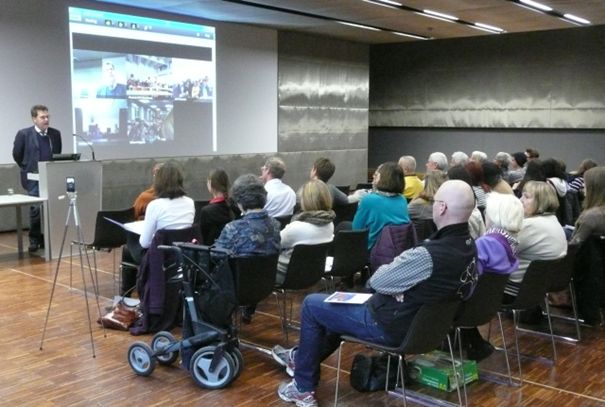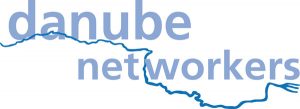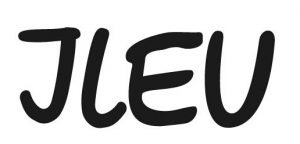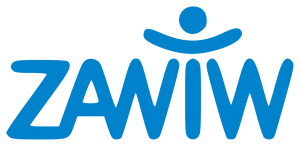Danube-Networkers-Online-Lectures (DALEC)

Aim
With the aid of the new information technologies, the project builds a bridge between universities and the civil society, between countries in the Danube Region and between old and young people. The main goal, the transfer of the lectures, usage of the internet platform by individuals as well as the discussions accompanying the lectures and the mini-projects fostered the European identity and focused different social and ecological problems along the Danube. The resulting findings were used in the field of implementation of the new media in heterogeneous groups at national and transnational level in the context of new concepts of lifelong learning. The project addressed people of different ages, the participants partook part on the basis of their experiences and know-how in the way of intergenerational learning and thus contributed to bridging science and society.Full Description
The Donaubüro Ulm/Neu-Ulm in cooperation with scientific education and civil society institutions from five countries (Germany, Austria, Hungary, Serbia, Romania) implemented the “Media Project Old and Young” (Danube-Networkers Lectures, DALEC) with the thematic focus “Values and Paths along the Danube”. The project’s subject corresponded to that year’s topic of the city of Ulm and the motto of the Danube Festival 2012: “New spirit along the Danube”. The key tasks were assigned to the Centre for General Scientific Continuing Education of Ulm University (in short ZAWIW).
Five lectures on scientific subjects at four different locations (Ulm, Budapest, Belgrade, Craiova and finally again in Ulm) were being prepared by scientists for lay people, held live to an audience in the respective locations and transmitted over the Internet in an online-lecture series DALEC to the other project locations. The lectures were being discussed nationally and transnationally. The lectures were translated into the project partners’ native languages. After the lecture, in-depth discussions took place in internet forums. The fifth event accompanied by an expert discussion took place in the framework of the International Danube Festival 2012 in Ulm.
The online-lecture series was aimed at older adults, students and pupils. A special feature of the project was the cooperation and discussion between old and young people. The understanding of values and individual topics was expected to be different not only between the participants from the Danube countries but also between the generations. The accompanying discussions were therefore contribute contribution to a better understanding between old and young. The active use of new media in the implementation of the project suppored a cross-generational learning process, whereby the older generation benefited from the younger ones.
The project was based on a pilot project called “Learning network KOJALA in Ulm”, and of course it benefited from the experienes made in KOJALA. In KOJALA, over several years, a number of internet-based old-young projects were initiated and scientifically supervised.
The lecture series was being presented on an internet platform in the form of video podcasts, and it was accompanied relevant materials. An internet forum provided the opportunity to elaborate on the subjects in intergenerational and cross-national discussions. In two locations (Ulm, Vienna), intergenerational study groups of students, pupils and seniors were being formed. The members met in person, took part in virtual learning projects and in small mini-projects
The calls for participation in the lectures and the accompanying learning project were being made public via the event announcements of the participating universities and partner organizations and their press distribution lists, also over Internet-communities and schools in the partners’ locations.
The project was successful and generateed a follow up project which was named DALEC 2.
Project partners:
- Center for General Scientific Continuing Education, Germany
- Danube Office Ulm/Neu-Ulm, Germany
- Christian University College of Teacher Education, Wien/Krems, Austria
- Andrassy-University Budapest, Hungary
- University Belgrad, Serbia
- University Craiova, Romania
- University Ruse “Angel Kanchev”, Bulgaria
Step by Step Explanation
-
1
Concept and preparation phase
Development of the concept, request of the lecturers, cooperation and agreement with the cooperation partners, technical preparation for the online lectures, planning of the local accompany mini projects with different education organizations -
2
Series of online-lecture with live broadcast and accompany mini projects
(date/title of the lecture/mini project)
18.01.2011 Identity-building Values for Old and Young in the Danube Region (Ulm, Germany)
Mini project for pupils about identity in general along the Danube: visiting a broadcast station
01.02.2012 What is the Value of Education in the Danube Region? (Belgrade, Serbia)
Mini project for students: workshop concerning values of education
07.03.2012 Innovative Use of Environmental Resources along the Danube (Vienna, Austria)
Mini project for pupils and older people: poster workshop about sustainability
09.05.2012 Democratic Values and Rights of Minorities, Europe Day (Budapest, Hungary)
Mini project concerning democracy was canceled -
3
Project summit during the conference at International Danube Festival 2012 Ulm/Neu-Ulm
10.07.2012 Knowledge Society and New Media as an Opportunity for the Danube Region
Mini projects for pupils and older people reflected about digital media use -
4
Evaluation phase
Evaluation of the experience during the project with a questionnaire for the coordinators and focus groups with participants, documentation of the lectures and the mini projects, it was thebase for the development and preparation of the follow up project DALEC 2.
Results
Implemented Methods
Online-Lecture
The online lectures give the input and thematic impulse for discussions; Following the online lectures the audience discussed during the online session and after that they use an internet platform to continue. The lectures were being presented in the national langue of the lecture and was simultaneously translated. Also the contribution by the discussion was translated. The lectures built the kick off for the mini projects.



